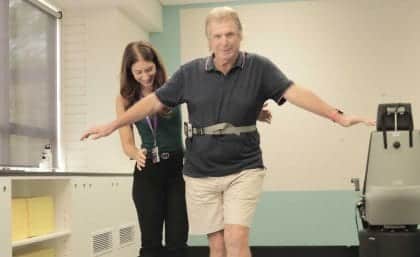
Sensorion and Pasteur Institute will collaborate on several lead programs to correct monogenic forms of hereditary hearing loss including, among others, the Usher Syndrome Type 1 and otoferlin-deficiency, according to the announcement. These gene therapy programs reportedly have the potential to substantially improve the quality of life for many patients, from newborn babies to the aging population, representing important commercial opportunities impacting hundreds of thousands of patients.
“This collaboration between Pasteur Institute and Sensorion aims to advance science from bench to bedside. We strive to change the standard of care for patients and Sensorion is our partner of choice for this major step forward,” said Dr Petit, an internationally renowned geneticist and neurobiologist with decades of hearing research leadership. She has been the recipient of numerous prestigious awards including the Lifetime achievement Award from the Association for Research in Otolaryngology (February 2018) and the Kavli Prize in Neuroscience (June 2018) awarded by the Norwegian Academy of Science and Letters for her pioneering work on the molecular and neural mechanisms of hearing. In May, Sensorion announced that Dr Petit had been named Chair of the company’s Scientific Advisory Board.
“We are very excited to cooperate with the highly accomplished scientific leaders of Pasteur Institute,” said Sensorion CEO Nawal Ouzren. “This partnership would enable us to expand our hearing loss franchise with novel gene therapy candidates allowing us to provide further relevant medical options to restore, treat and prevent debilitating diseases in the inner ear space.”
Sensorion is a clinical-stage biopharmaceutical company, which specializes in the development of novel therapies to restore, treat, and prevent inner ear diseases such as hearing loss, vertigo, and tinnitus. The company reports that it has two products currently in Phase 2 clinical trials: Seliforant (SENS-111) under investigation for acute unilateral vestibulopathy and Arazasetron (SENS-401) for sudden sensorineural hearing loss (SSNHL). In 2017, Cochlear Investment Ltd invested $1.9 million in the company.
Additionally, Sensorion announced yesterday that it had completed patient enrollment in a Phase 2a study (SENS-111-202) to confirm that Seliforant, unlike Meclizine, does not affect the vigilance and cognitive performance during a vestibular conflict. The study is a randomized, double-blind, placebo-controlled and Meclizine-calibrated, crossover trial in subjects susceptible to motion sickness designed to assess the safety and pharmacodynamic effects of Seliforant in experimentally evoked vestibular imbalance. The first results are expected by the end of the year, says the company.





